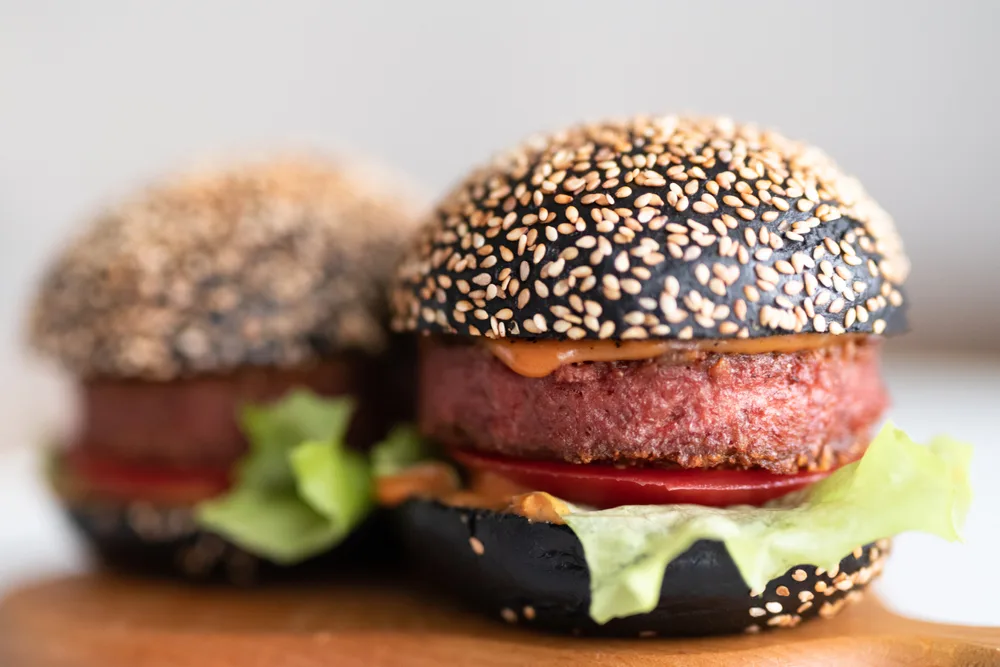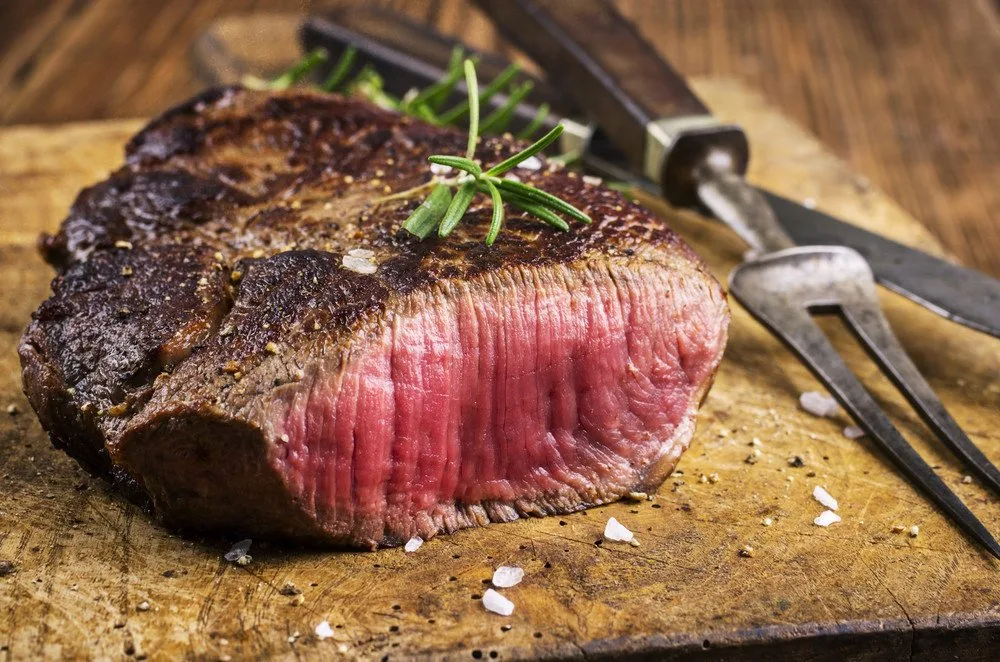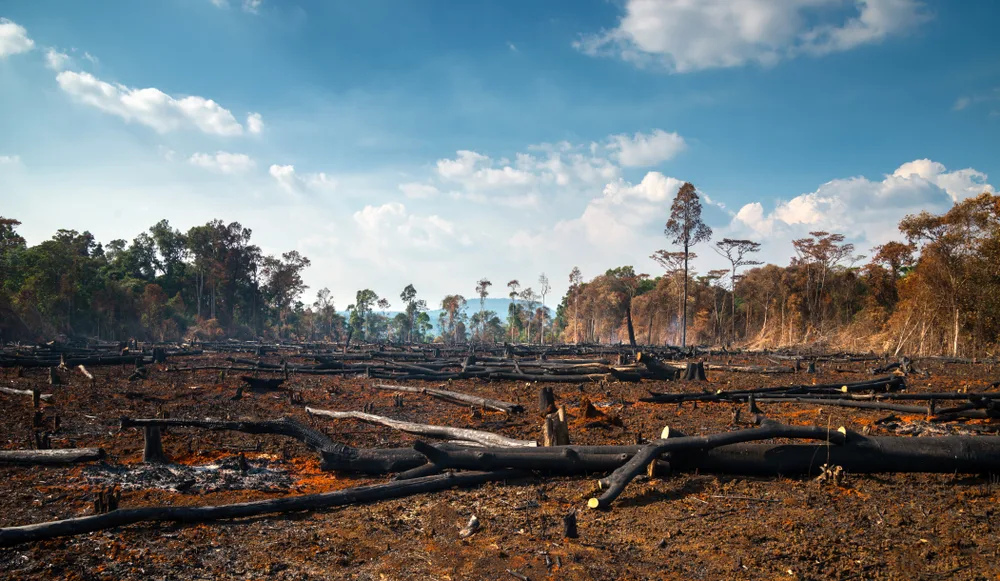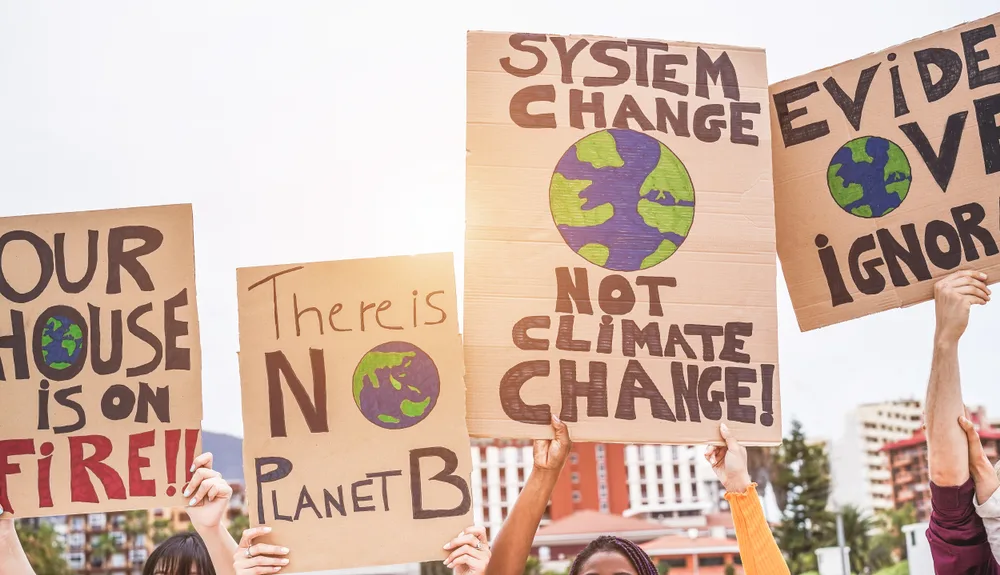According to data, the the global food system is currently responsible for about a quarter of all human made greenhouse gases, and this number is projected to increase, and if it does, it threatens warming above 1.5℃.
The COP26 climate summit in Glasgow is coming to a close and while much of the attention has been deservedly on phasing out coal, an area that’s seemingly not getting the attention it deserves is that of diet, particularly meat consumption.
“I do not think we have to reduce the amount of meat or livestock produced in the US. And a significant percentage is exported. It’s not a question of eating more or less or producing more or less. The question is making production more sustainable.” – U.S. Agriculture Secretary Tom Vilsack told The Guardian.
Sadly, it doesn’t appear that leaders are taking the effect that our dietary habits have on the planet into consideration – the menu at the summit can be described as nothing short of meat-laden. The fact is that if world leaders really want to achieve the goals they’ve set in cutting down methane emissions, then they need to acknowledge the cow in the room and address the world’s meat-eating habits.
The Bond Between Eating Meat And Climate Change
Meat-eating is such a significant factor when it comes to climate change and if we really want to do our part, then it’s important that we cut back on our consumption. If you need more convincing, read on for a few facts that we feel will help you make the right decision.
Fact #1: Meat production has skyrocketed in the past decade
According to world data, global meat production has more than quadrupled since 1961, with the dominant livestock being poultry, cattle (which includes beef and buffalo meat. The data also revealed that cattle meat production has doubled since 1961. Why does this matter? That brings us to fact number 2.
Fact #2: Meat production has a high carbon footprint
“To produce more meat you need to feed the animals more, which then generates more emissions. You need more biomass to feed animals in order to get the same amount of calories. It isn’t very efficient.” – Xiaoming Xu, University of Illinois researcher.
A recent study published in Nature Food found that meat production is responsible for 57% of all food production emissions, whereas, 29% came from the cultivation of plant-based foods, confirming that meat production is far worse for the climate than growing and processing fruits and vegetables.
When you remember that the human population has also more than doubled, it’s clear that the more meat we’re craving, the more the planet is likely to suffer.
Fact #3: Meat production is not kind to nature
According to the World Wildlife Fund (WWF), beef production is the top driver of deforestation in the world’s tropical forests.
If that’s not enough, a study published in Nature earlier this year found that more than a thousand species are projected to lose at least 25 percent of their habitats by 2050 if our meat-eating habits don’t change,
“It means that we’re going to be missing out on a lot of severely impacted species in the next few years, and not do anything about them until it’s quite possibly too late,” said Michael Clark, co-author of the study and the University of Oxford researcher.
Takeaway
We’re not asking you to give up your burgers and sausages. It would be great if you could, but if you can’t, then we ask that you cut back on the amount of meat that you eat.
While our world leaders at COP26 and across the world have found ways to implement policies that will allow people to easily adopt sustainable and healthy diets, we can do our part. Whether it’s embracing Meatless Mondays, or opting for plant-based meats that taste like the real thing (some even taste better!), it’s essential that we fix our diets or else we won’t be able to stomach the planet that we’re left with.
Want to know more?
How can we eat in a way that is healthy and good for the planet? The Planetary Health Diet aims to solve this growing challenge.
References
Clark, M. A., Domingo, N., Colgan, K., Thakrar, S. K., Tilman, D., Lynch, J., Azevedo, I. L., & Hill, J. D. (2020). Global food system emissions could preclude achieving the 1.5° and 2°C climate change targets. Science (New York, N.Y.), 370(6517), 705–708. https://doi.org/10.1126/science.aba7357
Eshel, G., Shepon, A., Makov, T., Milo, R. (2014). Land, irrigation water, greenhouse gas, and reactive nitrogen burdens of meat, eggs, and dairy production in the United States. Proceedings of the National Academy of Sciences. 111 (33) 11996-12001; DOI: 10.1073/pnas.1402183111
Williams, D.R., Clark, M., Buchanan, G.M. et al. Proactive conservation to prevent habitat losses to agricultural expansion. Nat Sustain 4, 314–322 (2021). https://doi.org/10.1038/s41893-020-00656-5
Xu, X., Sharma, P., Shu, S. et al. Global greenhouse gas emissions from animal-based foods are twice those of plant-based foods. Nat Food 2, 724–732 (2021). https://doi.org/10.1038/s43016-021-00358-x








![women [longevity live]](https://longevitylive.com/wp-content/uploads/2020/01/photo-of-women-walking-down-the-street-1116984-100x100.jpg)









